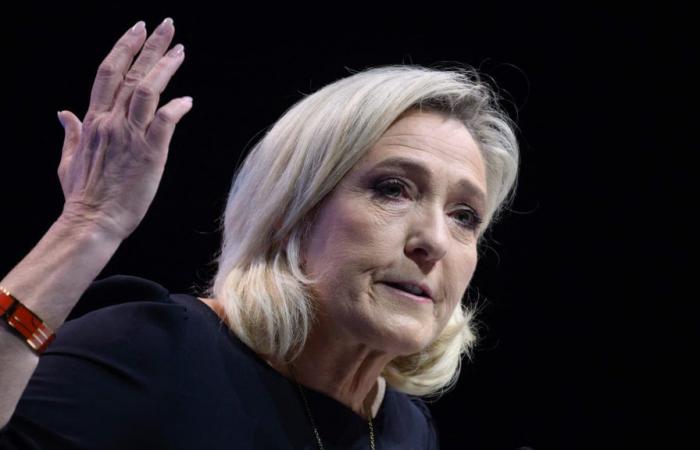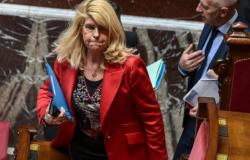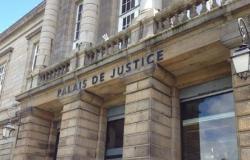Marine Le Pen was accused of “profoundly calling into question the Constitution” after having affirmed that the title of head of the armed forces of the President of the Republic was “honorary”.
“Honorable”. Here is the adjective chosen by Marine Le Pen in an interview with Télégramme to qualify the title of “army chiefs” of the President of the Republic. “It’s the Prime Minister who holds the purse strings,” she says.
A way of putting pressure on Emmanuel Macron and seeking to demonstrate that the far right will have a free hand at the top of power if it were to impose cohabitation on the Head of State, in the event of victory in the early legislative elections, scheduled for June 30 and July 7.
“A shared power”
These statements earned her the wrath of François Bayrou, the boss of MoDem judging that the three-time presidential candidate “deeply” calls into question the Constitution. Same disapproval from the Minister of Defense: the president is the “chief of the armies”, and “the constitution is not honorary”, replied Sébastien Lecornu on X.
Constitutionalist Benjamin Morel nevertheless judges that Marine Le Pen is “rather right” from this point of view. The status of head of the armed forces, present in article 15 of the Constitution, is above all “honorary”, he believes. “The President of the Republic is the symbol of national unity, of which the army is a representative. He takes the lead, but he does not direct it.”
“What really matters are above all articles 20 and 21,” continues the lecturer in public law at Paris II Panthéon University. One states that “the government determines and conducts the policy of the nation” and “disposes of the administration and the armed force”. The other that he is “responsible for national defense”.
“Therefore, there is a power shared between the President of the Republic and the government which is responsible for national defence,” says Dominique Rousseau.
The president “has the power to press the button” on nuclear weapons
The constitutionalist believes that the head of the armed forces has a “real” role. “He is the one who chairs the National Defense Councils and the higher committees of national defense,” he says. While emphasizing, in terms of foreign policy, that the president “negotiates and ratifies treaties,” under Article 52, which also implies “a necessary general agreement” with the government that “determines the policy of the nation.” Above all, “it is the president who has the power to press the button of the nuclear weapon,” Dominique Rousseau adds.
He and Benjamin Morel agree on the fact that the president of the RN, Jordan Bardella, if he were appointed to Matignon, could oppose sending troops to Ukraine, as indicated by Marine Le Pen. This under Article 35. Relating to the declaration of war, it specifies that it is the government which informs Parliament of an intervention by the armed forces.
“The president can block you on a lot of issues”
These different prerogatives raise questions about the balance that Emmanuel Macron should find with the far right, if the RN won the legislative elections. “The President of the Republic can block you on a lot of subjects,” says Benjamin Morel, taking in particular the example of “the signing of orders”. “So you have to take care of him, give him a little power so that he doesn’t bother you too much.”
“Everything depends on the strategy that Marine Le Pen and Jordan Bardella decide to pursue,” judges Dominique Rousseau, who questions: “To what extent the President of the Republic would agree to submit to a European and foreign policy contrary to what he has defended since 2017?”






